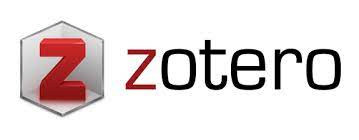Trend Evaluasi dalam Pendidikan Matematika
DOI:
https://doi.org/10.36805/jurnalsekolahdasar.v3i1.414Abstract
Abstrak Pendidikan matematika di Indonesia berkembang dengan pesat sejalan dengan perkembangan pendidikan matematika dunia. Perubahan-perubahan yang terjadi dalam proses pembelajaran di kelas, dipengaruhi adanya tuntutan sesuai perkembangan teknologi dan ilmu pengetahuan juga diawali adanya perubahan pandangan tentang hakekat matematika serta pembelajarannya. Perubahan pandangan tentang trend hakekat matematika dapat mendorong terjadinya perubahan substansi kurikulum. Sementara itu perubahan pandangan tentang pembelajaran matematika sangat dipengaruhi oleh terjadinya perkembangan mengenai teori belajar baik yang bersifat umum maupun yang khusus berkaitan dengan belajar matematika. Untuk mengetahui ada nya perubahan tersebut maka di butuhkan evaluasi untuk mengukurnya. Evaluasi yang bisa digunakan untuk mengukur tingkt berpikir rendah dan tingkat berfikir tinggi, namun ada evaluasi yang dilakukan untuk mengukur pembelajaran matematika secara umum, yaitu dengan TIMMS. Abstract: Mathematics education in Indonesia is growing rapidly in line with the development of mathematics education world. Changes that occur in the learning process in the classroom, influenced by the demands according to the development of technology and science also began with a change in views about the nature of mathematics and learning. Changes in views about the trend of the nature of mathematics can encourage changes in the substance of the curriculum. Meanwhile, changes in views about learning mathematics are strongly influenced by the development of learning theories both general and specifically related to learning mathematics. To find out the existence of these changes, an evaluation is needed to measure them. Evaluation can be used to measure low thinking levels and high levels of thinking, but there are evaluations conducted to measure mathematics learning in general, namely TIMMS. Keywords: evaluation, highlevel thinking, lowlevel thinking, TIMSS
Downloads
References
DAFTAR PUSTAKA Baumert, J. Et al. (2010). Teacher’s mathematical Knowledge, Cognitive Activation in the Calssroom, and student Progres. American education Research Journal, vol47/1,pp. 133-180. Berliner, D.C. (2001). Learning About and learning From Expert teacher. International journal of Edcutaional Research. 35(5), 463-482. Bromme, R. (2001). Teacher Expertise. Internationa encyclopedia of the social and behavioral science. Amsterdam: Smlser and Baltes, 15459-15465. Gonzales, P. William, T. Jocelyn, L. Roey, S. Kastberg, D. Brenwald, S. (2008). Higlights From TIMSS 2007: mathematics and Science Achievement of U.S Fourth and Eight Grade Student in an International Context (NCES 2009-2011). National Center For Education Statistics, Institute of Education Sciences, U.S. Departement of Education. Washington DC. Guerriero, S. (2017). Pedagogical Knowledge and The Changing Nature of The Teaching Profession. OECD Publishing. Paris. Henningsen, M. & Stein, M.K. (1997). Mathematical Tasks and Student Cognition: Clasroom Based Factors That Support and Inhibit High Level Mathematical Thinking and Reasoning. Journal for Research in Mathematics education, 28, 542549. International Mathematics and science Study (TIMSS). (2003). (NCES-2005-2005). National Center for Educator Statistics, Institute of Education Scienses, U.S. Departement of Education. Washington DC. Konig, J. Et al. (2011). General Pedagogical Knowledgeof Future middle School Teacher; on the Complex Ecology of the Teacher education in United states, Germany, and Taiwan. Journal of Teacher Education. Vol 62/2, pp.188-201. Peterson, P.J. (1988). Teaching for Higher Order Thingking in Mathematics; The Challenge for the Next Decade. Dalam D.A. Grouws, T.J. Cooney. & D, Jones (eds), Effective mathematics Teaching. Virginia: NCTM. Shadiq, F. (2010). Eefective Mathematics Teaching Strategies Inspiring Progressive Student. (Suatu Makalah di Sajikan pada Pemaparan Hasil Penelitian RECSAM 2). 18 Juni 2001. Yogyakarta:PPG Matematika.


















